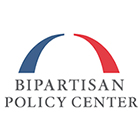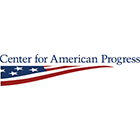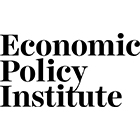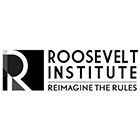You are here
The 2011 Fiscal Summit: The Solutions Initiative
Over the past year, people from across the political spectrum have acknowledged America’s unsustainable long-term fiscal challenges and are beginning to discuss solutions. As the report of the bipartisan Bowles-Simpson commission stated, “The era of debt denial is over, and there can be no turning back.” Today, the public is beginning to demand honest talk about difficult choices and shared sacrifices.
Now that we are confronting the hard truths, we must do something about them. We cannot hope for easy solutions. Nor can we hold firm to rigid ideologies that don’t allow for compromise and consensus. Though some may wish it weren’t so, the only way to make real and lasting progress is for all sides to be represented in a final agreement and to have a stake in its success. To clarify the issues, options, and points of view, the Peter G. Peterson Foundation designed the Solutions Initiative, which asked six organizations representing the wide scope of American political thought to develop comprehensive plans for putting the country on a fiscally sustainable long-term path.
The Peter G. Peterson Solutions Initiative:
Policy teams from the six groups taking part in the Solutions Initiative—the American Enterprise Institute, the Bipartisan Policy Center, the Center for American Progress, the Economic Policy Institute, The Heritage Foundation, and the Roosevelt Institute Campus Network (representing the perspective of younger Americans)—all provided comprehensive plans to meet the budget challenge head on. The goal is sound fiscal policy over the long run, so that we put in place structural reforms that will resolve these problems for a generation or more.
The six plans contain specific policy recommendations, reflecting the groups’ unique perspectives and priorities, and look out 10 and 25 years into the future. To make the plans more easily comparable, we asked that they be developed from a common starting point based upon the Congressional Budget Office’s long-term projections. We also asked the Tax Policy Center and Barry Anderson (former acting director at CBO) to serve as independent scorekeepers, reviewing the plans and applying consistent analytical techniques to all of the proposals. The end result is an apples-to-apples comparison of spending, taxes, deficits, and debt that illustrates the impact and interaction of various policy choices made by the grantees.
Click Here To Read the Full Report (PDF)

Arthur Brooks, President of the American Enterprise Institute:
“AEI is grateful for the Peter G. Peterson Foundation’s leadership on tackling the nation’s long-term fiscal challenges, and is delighted for the opportunity to work alongside the Foundation and other project participants in developing comprehensive solutions. This project lies at the core of AEI’s mission to pass on prosperity to future generations.”
Download the Executive Summary (PDF) | Download the Full Plan
Jason Grumet, President of the Bipartisan Policy Center:
“The Bipartisan Policy Center has demonstrated that an ideologically diverse group of experts and political leaders can come together to develop a sustainable fiscal policy for the nation. The consensus plan generated by the BPC’s Debt Reduction Task Force addresses our nation’s long-term fiscal challenges while providing near-term stimulus to create jobs. We thank the Peter G. Peterson Foundation for its generous support of this project. We hope that our plan and other efforts will encourage political leaders from across the philosophical spectrum to take up the challenge of serious fiscal reform.”
Download the Executive Summary (PDF) | Download the Full Plan
John Podesta, President and CEO of the Center for American Progress:
“We are pleased to continue our work in this important area of public policy. Our goal is to provide a detailed deficit reduction plan that promotes the right investments and a strong economy, while allowing the government to meet the needs of its people.”
Download the Executive Summary (PDF) | Download the Full Plan
Lawrence Mishel, President of the Economic Policy Institute:
“Participating in the Solutions Initiative will give the Economic Policy Institute and its partners, Demos and The Century Foundation, another opportunity to share our policy ideas on how to promote strong economic and job growth and strengthen the middle class while reaching fiscally sustainable budgets.”
Download the Executive Summary (PDF) | Download the Full Plan
Stuart Butler, Director of The Heritage Foundation’s Center for Policy Innovation:
“Federal spending has metastasized to the point that it threatens our nation’s fiscal stability. Having created a long-term structural problem, Washington must now fix it. Success will require great boldness, inventiveness and discipline.
The Heritage Foundation is proud to be a part of this initiative and eager to offer the American people a workable solution that will allow freedom, opportunity and prosperity to flourish in America for generations to come.”
Download the Executive Summary (PDF) | Download the Full Plan
Hilary Doe, National Director of the Roosevelt Institute Campus Network:
"This is a remarkable opportunity for young people nationwide to share their visions for the future in a concrete way. We're excited to present the Millennial Generation's perspective at the Fiscal Solutions summit, and look forward to participation from young people online and on college campuses across the country.”
Download the Executive Summary (PDF) | Download the Full Plan